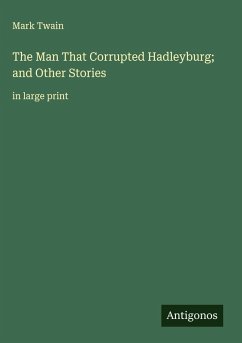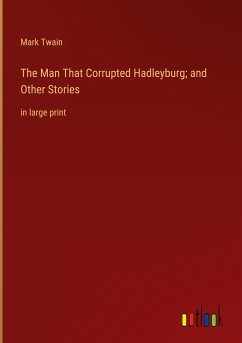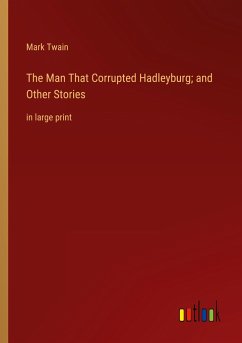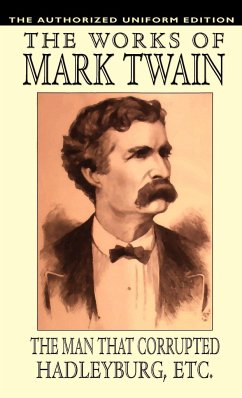
The Man That Corrupted Hadleyburg, and other stories
Versandkostenfrei!
Versandfertig in 1-2 Wochen
34,99 €
inkl. MwSt.
Weitere Ausgaben:

PAYBACK Punkte
17 °P sammeln!
"The Man That Corrupted Hadleyburg" is a piece of short fiction by Mark Twain. It first appeared in Harper's Monthly in December 1899, and was subsequently published by Harper & Brothers in the collection The Man That Corrupted Hadleyburg and Other Stories and Sketches (1900). Some see this story "as a replay of the Garden of Eden story", and associate the corrupter of the town with Satan.It was many years ago. Hadleyburg was the most honest and upright town in all the region round about. It had kept that reputation unsmirched during three generations, and was prouder of it than of any other o...
"The Man That Corrupted Hadleyburg" is a piece of short fiction by Mark Twain. It first appeared in Harper's Monthly in December 1899, and was subsequently published by Harper & Brothers in the collection The Man That Corrupted Hadleyburg and Other Stories and Sketches (1900). Some see this story "as a replay of the Garden of Eden story", and associate the corrupter of the town with Satan.It was many years ago. Hadleyburg was the most honest and upright town in all the region round about. It had kept that reputation unsmirched during three generations, and was prouder of it than of any other of its possessions. It was so proud of it, and so anxious to insure its perpetuation, that it began to teach the principles of honest dealing to its babies in the cradle, and made the like teachings the staple of their culture thenceforward through all the years devoted to their education. Also, throughout the formative years temptations were kept out of the way of the young people, so that their honesty could have every chance to harden and solidify, and become a part of their very bone.















